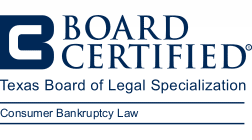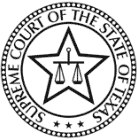Can You Discharge Personal Guarantees in Bankruptcy?
 When you offer a personal guarantee on a business debt, you take on personal liability for that debt. If you gave a personal guarantee but are now going through financial troubles, you are likely concerned about being on the hook for that debt. You may be wondering if bankruptcy discharges personal guarantees. The good news is that it is often possible to discharge or erase a personal guarantee in bankruptcy. An experienced Texas bankruptcy attorney can represent you in bankruptcy and work to discharge your personal guarantee.
When you offer a personal guarantee on a business debt, you take on personal liability for that debt. If you gave a personal guarantee but are now going through financial troubles, you are likely concerned about being on the hook for that debt. You may be wondering if bankruptcy discharges personal guarantees. The good news is that it is often possible to discharge or erase a personal guarantee in bankruptcy. An experienced Texas bankruptcy attorney can represent you in bankruptcy and work to discharge your personal guarantee.
How Do Personal Guarantees Work?
When you give a personal guarantee, your creditor may go after you personally for that debt, even if the original debt is in the name of a business. For example, a landlord may require you to sign a personal guarantee in order to lease office space for your business. If you later break the lease, the landlord will be able to go after you personally based on this personal guarantee.
How Can Bankruptcy Discharge a Personal Guarantee?
Because a personal guarantee is a personal obligation, to discharge it in bankruptcy you will have to file bankruptcy in your personal capacity rather than as a business. There is one exception to this rule: You can file for bankruptcy as a sole proprietor and still discharge a personal obligation because sole proprietors are liable for both personal and business debts.
Some personal guarantees cannot be discharged in bankruptcy, however. If you entered into a personal guarantee with a security interest on your asset, bankruptcy will only discharge the personal obligation, not the lien. As a result, although your personal guarantee will be wiped out in bankruptcy, the lender will still be able to foreclose on the asset.
Should You File Chapter 7 or Chapter 13 to Discharge a Personal Guarantee?
Personal guarantees may be discharged either in Chapter 7 or Chapter 13. Which bankruptcy chapter you choose will depend in large part on the type of debt you have.
Chapter 7
In Chapter 7 bankruptcy, your assets are liquidated to discharge your debts. Chapter 7 discharge is quicker, and it can be a good option if you have a great deal of personal debt, such as personal guarantees or credit card debt.
If your income is higher than the Chapter 7 limit but most of your debt is business debt, you may still be able to file Chapter 7. That is because business debt is not included in the means test calculation to determine eligibility for Chapter 7. In this way, you could take advantage of the faster Chapter 7 process even if your income would otherwise be too high to qualify, and discharge personal guarantees while continuing to earn a high salary.
Chapter 13
When you file for Chapter 13 bankruptcy, unlike Chapter 7, your assets are not sold to pay off debts. Instead, you make a repayment plan, including for repaying personal guarantees. In Chapter 13, you would file bankruptcy in your personal capacity, keeping your assets and paying your debt over time.
Chapter 13 might be a better option for you if you are still operating your business. You can use Chapter 13 to pay back individual debts such as personal guarantees and credit card debt. This would free up cash to keep running your business while still allowing you to discharge the personal debt through the repayment plan.
Contact a Harris County, TX Bankruptcy Attorney
Houston, TX bankruptcy lawyer Vicky Fealy is experienced in advising clients on discharging personal guarantees. Her law firm’s focus is on helping people take care of their finances, and a personal guarantee is no exception. She works with clients at The Fealy Law Firm, PC using her knowledge of this complex area of law. Contact her office at 713-526-5220 for a free consultation to see your options for discharging personal guarantees in bankruptcy.












